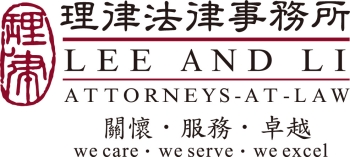Unauthorised trademarks and barcodes are often used on counterfeit products. Unauthorised use of a registered trademark is subject to civil and criminal liabilities, as this is in violation of the Trademark Act. However, whether the unauthorised use of a barcode violates any laws or regulations remains an issue.
A commodity barcode is issued by the GS1 Taiwan or an authorised administrative authority. It comprises:
- a country code;
- a company code; and
- a code of specific commodities.
In the past, most courts have held that the forgery of a barcode or use of a forged barcode did not constitute an offence on the grounds that general consumers would not select commodities on the basis of a barcode.
However, in a 2010 criminal case the Taipei District Court held that once a commodity barcode is read through a computer, the nature of the commodity, its manufacturer and country of manufacture can be immediately identified. A barcode is therefore equivalent to a trade name. As a commodity barcode is a symbol applied on articles and can serve as proof in business practice or in a contract, it is deemed a quasi-private document. Thus, in this case, the defendant asking a third party to forge the barcode and use the same was deemed an act of producing a quasi-private document in the name of another party.
The court highlighted that it is a well-known fact that a commodity barcode is a symbol of the automated administration of a series of processes for general products including manufacturing, wholesale and sale. Moreover, the defendant was aware that a barcode is used to identify the owner, manufacturer, seller or importer of commodities. In this case, as the defendant and the legitimate user of the barcode had no connection, the printing of such barcode on the defendant's commodities could make others misidentify the user of the barcode as the owner, manufacturer, seller or importer of the commodities, which would affect the administration of the barcode by GS1 Taiwan or other barcode administrative authorities and impair the legitimate user's management of the commodities with the barcode.
Recently, the Supreme Court, the IP Court, most of the district courts and other high courts have been reviewing the relevant issues. They are all of the view that unauthorised use of barcodes should constitute forgery under the Criminal Code.
This article was first published by the International Law Office, a premium online legal update service for major companies and law firms worldwide. Register for a free subscription.



